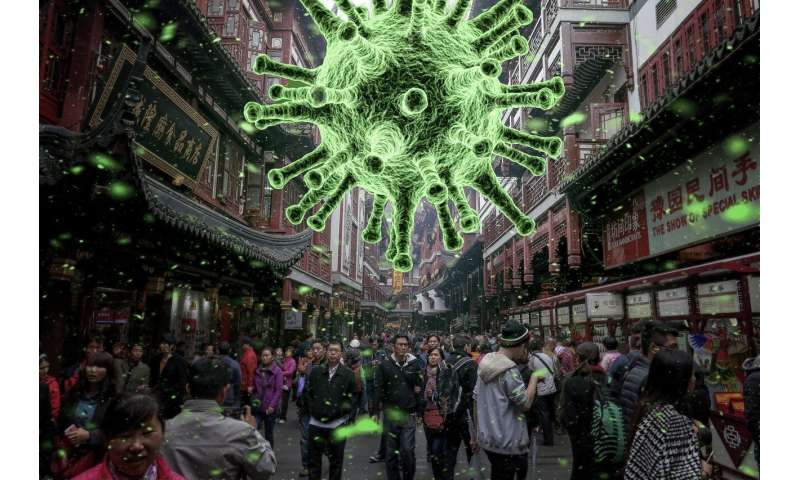
Soldiers and police hit the streets of Indonesia’s capital Jakarta Friday to enforce its toughest social-distancing rules yet as coronavirus infections surge and critics warn of a looming public-health disaster.
Violators face heavy fines and up to a year in jail for breaking the new rules, which include a ban on gatherings of more than five people, limiting restaurants to online delivery orders and reducing public transport.
Motorbike taxis seen everywhere in the megacity of some 30 million were banned from picking up passengers and residents were ordered to stay home.
“I’ve been checking my smartphone all day but no orders so far,” said Embari, a ride-hailing driver who goes by one name.
“I know drivers can’t pick up passengers but I was hoping for some food delivery calls.”
Mosques and other houses of worship were ordered to shut for at least the next two weeks—after millions continued to attend Friday prayers in the Muslim majority nation, despite calls to worship at home.
President Joko Widodo declared a state of emergency last month as coronavirus deaths in the world’s fourth most populous country jumped.
But he resisted calls for a nationwide lockdown fearing a collapse in Southeast Asia’s biggest economy, where tens of millions eke out a living on poorly-paid, informal jobs.
Indonesia’s government has faced heavy criticism over its handling of the crisis and questions about the true number of deaths.
Officially, 280 people have died of the respiratory illness with 3,293 confirmed cases as of Thursday in the archipelago of more than 260 million.
That is the highest death toll for an Asian nation outside China.
But testing rates are among the lowest in the world and there are fears the number of dead could be much higher.
Jakarta city data showed some 776 suspected and confirmed victims had been buried in local cemeteries under COVID-19 protocols requiring bodies to be wrapped in plastic and quickly buried.
That is more than five times the official 142 dead in Jakarta, the epicentre of the outbreak in Indonesia.
Officials have admitted data collection among different jurisdictions is patchy and incomplete.
“The Indonesian government needs to ramp up testing to know the true extent of the coronavirus outbreak in the country,” said Andreas Harsono, senior Indonesia researcher at Human Rights Watch.
“The authorities should also uphold the right to information and provide accurate statistics to the public.”
Indonesia’s spy agency has projected some 95,000 infections by June.
Source: Read Full Article
